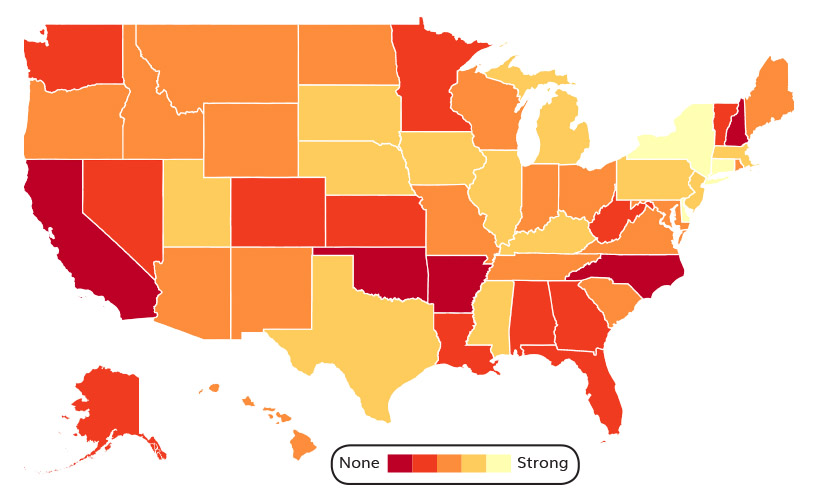WUFT News | March 15, 2017
By Andrew Briz, Laura Cardona, TJ Pyche and Caitie Switalski
A statewide investigation of compliance with Chapter 119 of the Florida Public Records Act has revealed that the state lacks a uniform system to enforce the public records law. WUFT News investigated compliance with the state public records law in all 20 Florida district state attorney’s offices.
The sunshine law, Chapter 119, states, “all state, county, and municipal records are open for personal inspection and copying by any person” and providing access to these “is the duty of each agency.”
38 Days
The average time it took a State Attorney’s Office to complete public records requests
$54,700
The highest initial quote recieved from State Attorney’s Office to complete request
Under Florida public records law, if a citizen (or reporter) is denied access to public records under Chapter 119, the only way to enforce compliance is by filing suit in civil court.
Under current public records law, if someone thinks a request for records has been wrongly denied or delayed, few options are in place for enforcement. One of those options is to file a complaint with the local state attorney. However, not all of those complaints are investigated.
The goal of this project was to research how many Sunshine complaints are made to the state attorneys, how many of those complaints are investigated, and the number that resulted in some kind of legal action.
Quantifying the problem shows how widespread noncompliance is across the state. Proposed bills for the 2017 legislative session would further harm the issue of noncompliance by weakening the only enforcement mechanism: the attorneys’ fees provision.
Shall or May?
Florida legislators are drafting bills that aim to end the “cottage industry” of using public records laws for profit.
The town of Gulf Stream in Palm Beach County is ground zero for a statewide public records battle. A feud between town officials and a local businessman exemplifies the flaw in the existing public records laws that some lawmakers are using as reason to introduce legislation with the potential to irreparably harm Florida’s Sunshine Law.
The way that the laws are written now, attorneys’ fees are awarded to a citizen or organization that wins a lawsuit fighting for access to public records. The law states judges “shall” order agencies to cover attorneys’ fees.
RELATED: Shall or May? Florida’s Public Record Law Hangs On By One Word
Senate Bill 80 proposes a change to the wording in Chapter 119 from judges “shall” award attorneys’ fees to judges “may.” This would leave compensation for attorneys’ fees to the discretion of the judge.
The map below shows the details of the investigation of each of Florida’s 20 district state attorney’s offices. Click on the districts for a breakdown of data from each of the SAOs.
Key Findings
- State Attorney’s Offices lack uniformity in responding to or keeping record of F.S. 119 complaints.
- There is no mechanism to track complaints of F.S. 119 violations to hold SAOs accountable for inaction.
- Each SAO responded at different times, some taking longer than others. Request completion times ranged from 10 minutes to 140 days.
- Some offices stated it is not their responsibility to compile records or pursue violations of F.S. 119.
- Finding relevant contact information for an SAO is not easy. Some offices have incorrect or unlisted email addresses. One office required requests to be submitted by standard mail only.
Proposed Solutions
The state should implement an enforcement mechanism that keeps track of Chapter 119 violations and holds those responsible accountable.

Barbara Petersen, the president of the Florida First Amendment Foundation, suggested the development of a state agency dedicated to ensuring compliance with the Sunshine Law.
Because the government already shells out millions of dollars to settle Chapter 119 violation suits, Petersen said this kind of resource would pay for itself.
Petersen argued the bottom line is citizens should not be required to pay attorneys’ fees in public records cases or the majority of citizens’ access to public records will be harmed.
Connecticut, where there is an entire government agency dedicated to ensuring compliance with the state’s public records laws, is the golden standard, she said. This office of open government can take violators to court so the public does not have to bear that burden.
 Special Report from WUFT News
Special Report from WUFT News